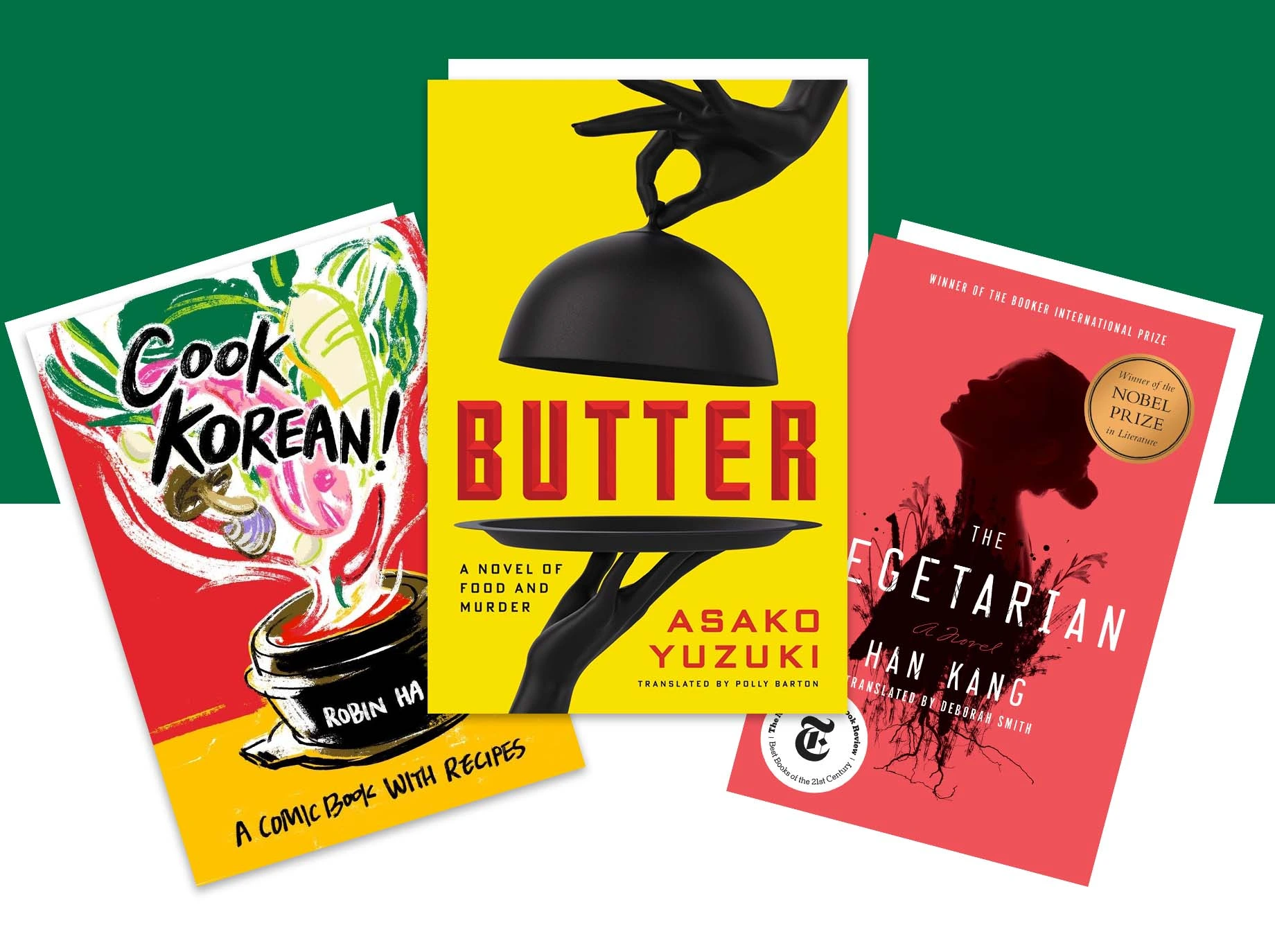
Food became a powerful storytelling tool this year, exploring self-discovery and tradition
December 20, 2024
This past year, food emerged as a powerful storytelling tool in literature. It told the stories of people, places, and sometimes, even societies. Books like Butter by Asako Yuzuki used culinary passion to unravel themes of self-discovery and defiance against societal norms. Meanwhile, Cook Korean! by Robin Ha blended vibrant graphic storytelling with food culture, reflecting the rising appeal of food literature as a bridge to identity, heritage, and tradition.
At the forefront of this narrative shift stands Han Kang’s The Vegetarian, a novel that continues to captivate us years after its release. Its accolades, including the Man Booker International Prize this year, underscore the growing appetite for literature that blends psychological depth with cultural critique. By using food — or the rejection of it — as an allegory for control, desire, and societal pressure, The Vegetarian transcends borders, giving you a window into the complexities of identity, race, and womanhood.
From our kitchens to bookshelves, food has proven to be a rich narrative device this year — one that satisfies far more than hunger. In stories of rebellion, belonging, or cultural introspection, it reminds us that a meal can be the setting, the symbol, and sometimes, even the story itself.